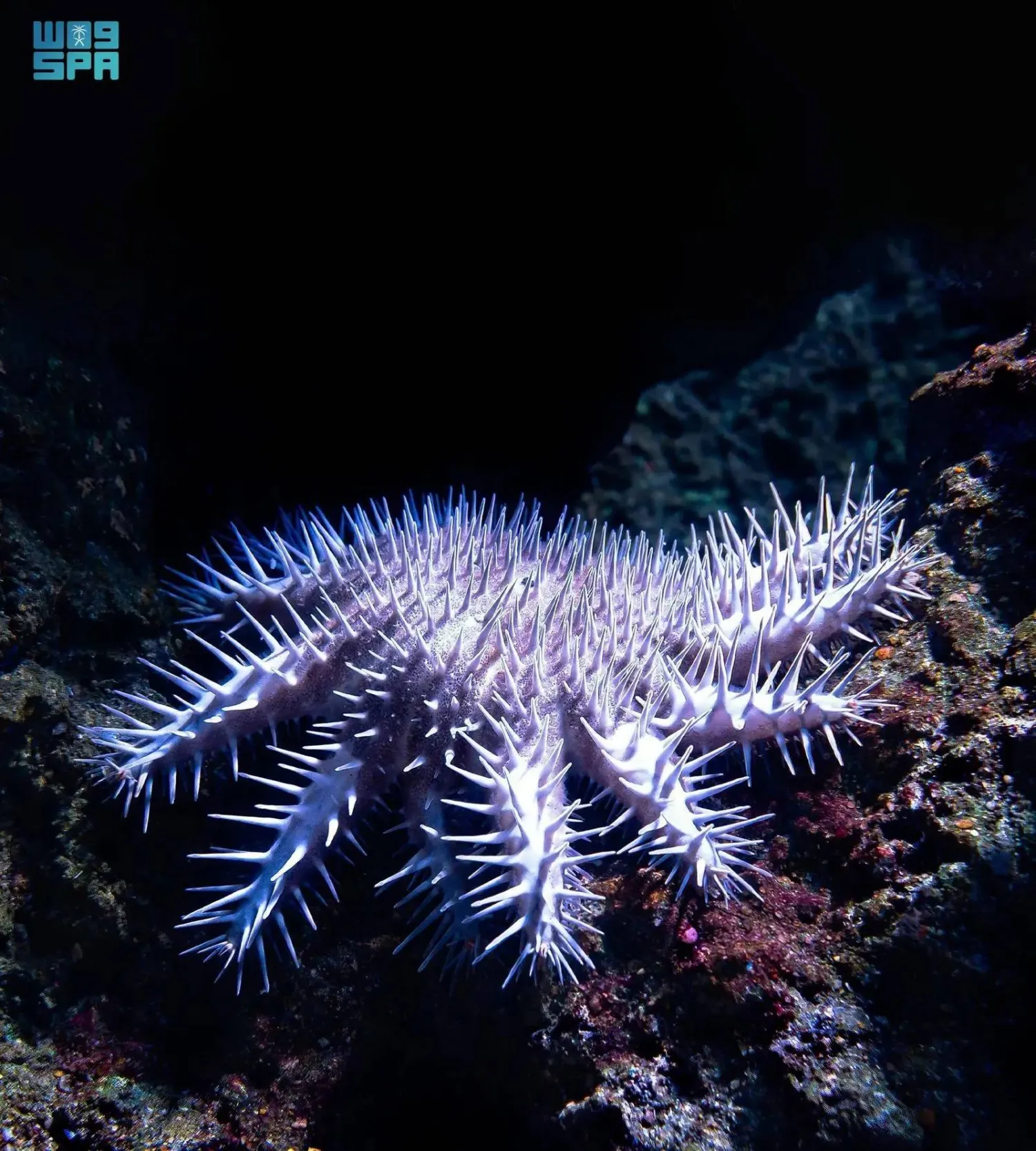Saudi Arabia’s National Center for Wildlife (NCW) initiated a comprehensive survey plan to gather essential data on Crown-of-Thorns Starfish (COTS) populations in key areas of the Red Sea.
The data will be used to promptly address outbreaks of the organism, thereby safeguarding biodiversity and the health of coral reefs.
The effort is part of NCW's role as the national authority and point of reference for establishing protocols and standards related to terrestrial and marine wildlife and addressing the threats they face. It follows the adoption of a protocol to control the spread of COTS, which is tailored to the organism's nature in the Red Sea environment. The protocol allows for a swift and effective response to limit its spread and protect coral reefs.
In December 2022, the NCW convened a workshop to discuss combating COTS outbreaks and develop a protocol for studying the current situation and identifying the causes of the increase in COTS numbers above the natural rate. The workshop also aimed to learn about best practices and applications for controlling the spread of damage from various global experts and consultants in this field.
The plan aims to identify operational procedures and establish the best response framework and mechanism for involving stakeholders. COTS is a marine organism that feeds on algae and types of bacteria that grow on coral reefs. However, it poses a significant threat to ecosystems when it undergoes outbreaks, which have been linked to significant damage to coral reefs in the Red Sea, particularly during the observed spawning season, from the last two weeks of July to the first two weeks of August.
Understanding the organism's spatial distribution, density, and reproductive behavior during its peak period is crucial for effective management and mitigation of potential outbreaks that could lead to coral-reef degradation.
The survey plan offers baseline data on COTS populations in key areas of the Red Sea that can be utilized to predict and manage outbreaks of the organism in a timely manner, thus protecting coral-reef health and biodiversity. The approach is based on accuracy and practical considerations to ensure the comprehensiveness and feasibility of the survey.
Cooperation between marine biologists, local stakeholders, and divers in this initiative is an integral part of conservation efforts in the region.
The crown-of-thorns is a large starfish species belonging to the echinoderm phylum. It inhabits tropical and subtropical Pacific reefs and typically reproduces when the water temperature is 28 degrees Celsius.
During outbreaks, its consumption of coral reefs exceeds the growth rates of reefs. One of the main causes of this organism's outbreak is the imbalance of the food chain and overfishing of the organisms that feed on it, the most important of which is the Napoleon fish, or tarpon.









